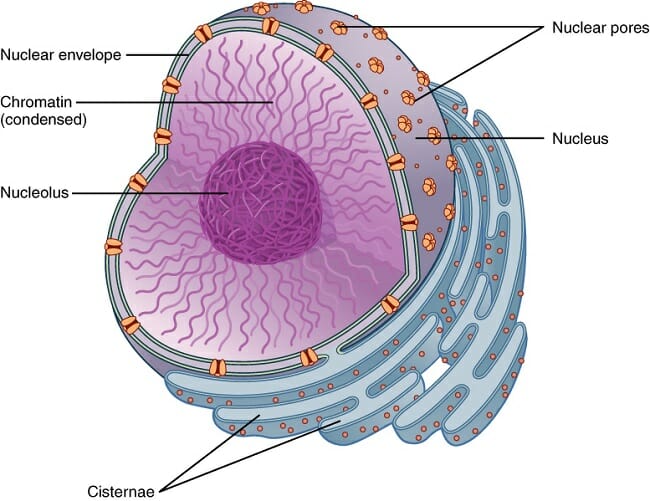20 Animal Nucleus
Most recently the focus has been on animal models of adolescent binge drinking. DNA is the instruction manual for the cell to make everything the body needs.
The nucleus is a pivotal organelle responsible for regulating almost all forms of cellular activities.

Animal nucleus. The reason the nucleus is referred to as the brain of the cell is that it controls the growth and reproduction of the cell. The nucleus is the control center for the cell. What is a nucleus.
This nucleus of Precambrian rock does not cut the surface anywhere in Indiana or the lower Midwest. Mostly every type of cell that exists is categorized on the basis of the absence or presence of the nucleus within its cell categorized either as a prokaryotic or eukaryotic cell. The nucleus controls and regulates the activities of the cell eg growth and metabolism and carries the genes structures that contain the hereditary information.
Mitochondria Golgi apparatus nucleus and endoplasmic reticulum. To understand what the nucleus does in the cell. In most animal cells the nucleus.
They both have a double-stranded DNA along with histone proteins synthesized by ribosome in the cytoplasm. It does break. DNA is the instruction manual for the cell to make everything the body needs.
They both have nucleus and cytoplasm where DNA genetic material is encircled by nuclear membrane. It is the main control center for the cell and acts kind of like the cells brain. Small round structure that contains chromosomes and regulates the DNA of a cell.
Some of the changes seen were wholesale decreases in serotonergic signaling in the dorsal raphe nucleus decreased expression of genes involved in myelination and cholesterol production and changes in NMDA receptor subunit expression that could make the animals. Animal Cell Nucleus. Used tools for the purpose of hunting large animals.
The nucleus also produces the necessary precursors for protein synthesis. Back in what was to become Indiana human ancestors may or may not have. The DNA housed within the cell nucleus contains the information necessary for the creation of the majority of the proteins needed to keep a cell functional.
Passing on genetic traits between generations. The nucleus is an organelle found in eukaryotic cells and functions as the holder of a cells blueprint. In plant cells the nucleus is.
The nucleus contains the chromosomes which are made of DNA. This organelle has two major functions. In most animal cells the nucleus is near the center.
It stores the cells hereditary material or DNA and it coordinates the cells activities which include intermediary metabolism growth protein synthesis and reproduction cell division. Animal Nucleus or Human Nucleus The nucleus is the most important organelle of cell. Unlike prokaryotic cells DNA in animal cells is housed within the nucleus.
They dont have a cell wall and are part of bigger multicellular organisms like people. The gel-like matrix in which the nuclear components are suspended is the nucleoplasm. The nucleus was first discovered and named by Robert Brown in 1833.
The nucleus is perhaps the most important structure inside animal and plant cells. What is the nucleus responsibly for. The nucleus often referred to as the brain of the cell is the largest and most prominent organelle in the cell.
It controls all meta-bolic processes and hereditary activities of the cell. One fundamental difference is that bacterial cells lack intracellular organelles such as mitochondria chloroplasts and a nucleus which are present in both animal cells and plant cells. In addition to having a nucleus animal cells also contain other membrane-bound organelles or tiny cellular structures that carry out specific functions necessary for normal cellular operation.
Early humans did not start using tools until roughly 50000 years ago in Africa. Animal cells are eukaryotic meaning they have a nucleus. Thread-like rods of DNA.
Bacterial animal and plant cells compared Bacterial cells differ from animal cells and plant cells in several ways. The cell nucleus is a large organelle in eukaryotic organisms which protects the majority of the DNA within each cell. Only eukaryotic cells have a nucleus.
Both plant and animal cells have a nucleus. Both plant and animal cells have these structures. The nucleus contains the chromosomes which are made of DNA.
The nucleus is a highly specialized organelle that serves as the information and administrative center of the cell. In fact the definition of a eukaryotic cell is that it contains a nucleus while a prokaryotic cell is defined as not having a nucleus. Nucleoli are small bodies often seen within the nucleus.
Animal cells are eukaryotic cells or cells with a membrane-bound nucleus.
